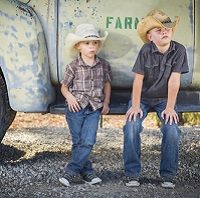Article
E. Coli Outbreak Traced to Barnyard Field Trip
Author(s):
Don't eat in the barn is the takeaway from an E.coli outbreak that hospitalized children in Washington State. Sixty cases were identified after a school field trip to a dairy farm where food was served in a cattle barn.

School children who attended an educational event on dairy farming held in Washington State earlier this year also got a scary lesson in infectious disease—60 people including 54 kids were later treated for E. coli 0157:H7 infections, some of them severe. There were no deaths. Eleven patients were hospitalized with the infection and six developed hemolytic uremic syndrome.
According to a report in the US Centers for Disease Control and Prevention’s Oct. 30 edition of Morbidity and Mortality Weekly, the event was held partly in a barn. Food was served there and farm animals had recently been exhibited in the structure.
The bacteria were apparently in animal feces. According to the CDC, manure had been piled inside the barn in an effort to clear it from areas that were underfoot. That was done by using tractors, scrapers and leaf blowers, which the CDC said likely spread E. coli to areas where the students came in contact with it.
The event was attended by about 1,000 first-grade pupils and a group of adolescents who helped with setting up and breaking down exhibits and displays.
The sick kids initially included 35 first-graders and three high-school students. The illness spread to the children’s siblings, their caretakers, and other relatives.
“Students attending the setup and breakdown might have had higher rates of illness because they consumed food in the barn and might not have washed their hands before eating,” the CDC’s Kathryn Curran, PhD, noted in the article.
It was a mistake to serve food in the barn, she added, since it should have been considered a contaminated environment.
The article referred readers to a publication from the National Association of State Public Health Veterinarians: J Am Vet Med Assoc 2013;243:1270-88 on measures that should be taken to prevent disease associated with having animals in public settings.





